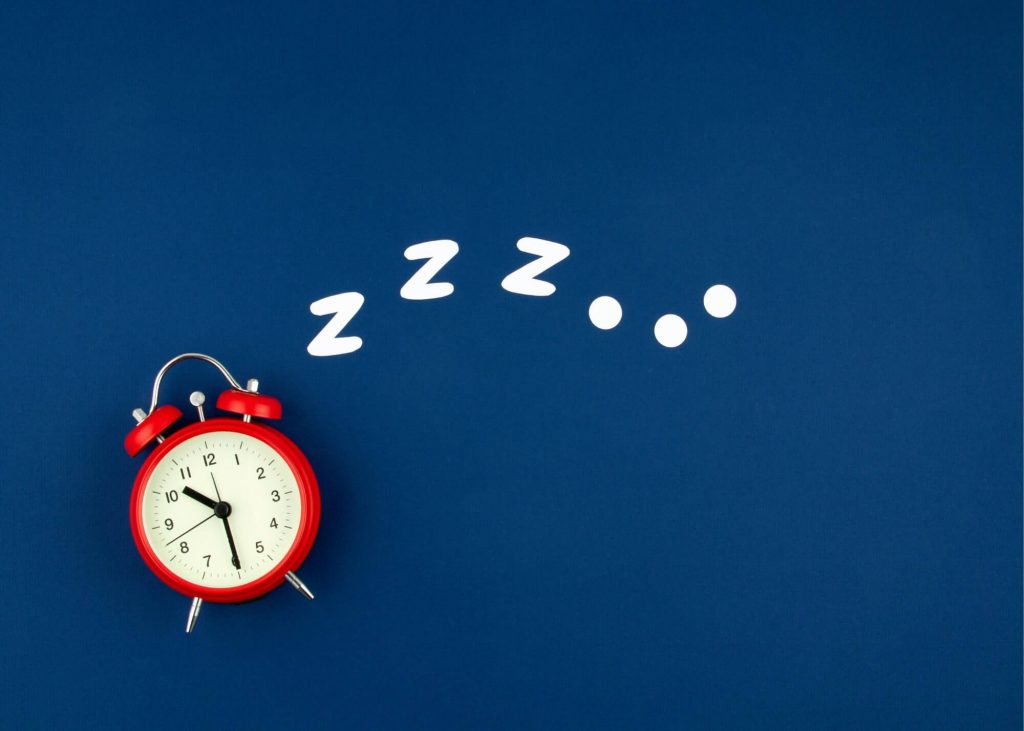How Much Sleep for Brain Health? There Is No Magic Number. Here’s Why.
Experts share why everyone might have different sleeping needs and provide tips to overcome insomnia.
Do you know if you’re getting enough sleep?
Scientists have analyzed the sleeping habits of millions of individuals, and found that sleep is important for maintaining brain health and that getting enough healthy sleep can even reduce the risk of developing cognitive decline and Alzheimer’s disease. In a number of large studies, researchers saw that people who slept seven hours at night had the lowest risk of developing cognitive decline or dementia, compared to people who slept less or slept more.
There is no magic number of hours that everyone your age should be sleeping, but seven hours is a helpful baseline.
But good sleep can be hard to come by. As many as half of adults over 65 report symptoms of insomnia. Perhaps you’ve experienced the frustration that comes with not being able to fall asleep or stay asleep. It can lead you to wonder if you’re getting enough sleep—and that, in turn, can make you even more worried. This condition is sometimes called sleep anxiety. And, unsurprisingly, sleep anxiety makes it even harder to get good sleep.
Let’s take a look at the science surrounding the ideal amount of sleep—and the evidence-based strategies for alleviating your worries. If you’re still curious, you should consult with sleep experts or doctors.
How much sleep does your body need?
While large studies found on average that seven hours of sleep was associated with the best cognitive health, everyone’s different, and the specific amount of sleep an individual person actually needs can vary greatly from person to person, depending on factors like age. Another factor that could affect your individual, optimal amount of sleep for brain health is genetics: A small percentage of people have a gene that makes it possible for them to sleep for fewer than six hours each night without any health or cognitive consequences the next day.
So, if the answer could be different for each individual, how much sleep should you actually try to get? Experts suggest taking cues from your body to figure out how much you should sleep.
“The best indicator of whether you’re getting enough sleep is how you feel during the day,” said Gorica Micic, PhD, a sleep expert from Flinders University. “If you feel sleepy, then you may need more sleep.”
If you aren’t feeling tired after five hours of sleep, it shouldn’t be a source of stress or anxiety that you’re not getting seven or eight hours: You’re simply paying attention to the sleep rhythms of your body.

Prevent insomnia: Don’t lie in bed awake for hours
Psychologists have also developed cognitive behavioral therapy (CBT) techniques that can help break the cycle of sleep anxiety. This means analyzing your thought patterns and teaching you strategies to counter thoughts that might keep you awake. Perfecting these techniques may take anywhere from two to eight sessions with your doctor or therapist.
Cognitive behavioral therapy teaches you to identify the thoughts and behaviors that are keeping you awake, so you can work to eliminate them. For example, when you can’t sleep, you might check your phone. The bright light as well as all the notifications, social media, emails and other content reinforce the insomnia. Cognitive restructuring through CBT involves learning to challenge the thoughts, beliefs and behaviors that keep you up at night.
CBT can also help you make sure you don’t begin to subconsciously associate your bed with anxiety or sleeplessness. If you aren’t feeling sleepy, it doesn’t make sense to lay awake in bed. Michael Perlis, PhD, director of the behavioral sleep medicine program at the University of Pennsylvania recommends giving yourself 20 minutes in bed to see if you fall asleep. After that time is up, leave your bed. However, if you have difficulty orienting yourself and navigating in the dark, make sure you have a plan that allows you to reach a light switch to prevent falls and confusion.
“The problem with staying in bed for any appreciable amount of time is that this reinforces sleeplessness, physiologically and psychologically,” Perlis said. Problems can arise when you
associate your bed with insomnia rather than the place you sleep. Activities like reading or listening to music can help you relax by distracting you from stressful or anxious thoughts . When you feel tired, head to bed and hopefully you’ll have an easier time getting to sleep.
Up to four in five individuals who learn and practice these skills show sustained improvements in their sleeping habits.
The ideal amount of sleep is more than a prescribed number of hours
There is no magic number of hours that everyone your age should be sleeping.
There’s no question, a sufficient amount of high-quality sleep is a key part of good brain health. The science shows it. But when it comes to getting the right amount of sleep for you, at the end of the day, here’s the important takeaway: There is no set “ideal” number of hours of sleep per night. There are only guidelines, which you can use as a jumping-off point to determine the amount of sleep that helps you personally feel your healthiest and most clear-minded.
Many older adults stress and worry about getting enough sleep, which causes anxiety and in turn makes it more difficult to fall asleep quickly. Experts suggest listening to your body, if you’re tired then get more sleep. If you’re struggling to fall asleep in bed, consult with experts about safe, constructive ways to break the cycle of stress and anxiety that might be keeping you awake.
To learn about clinical trials of new medications that aim to modify the pathology of Alzheimer’s disease, call Charter Research at 407-337-1000 (Orlando) or 352-775-1000 (The Villages).
